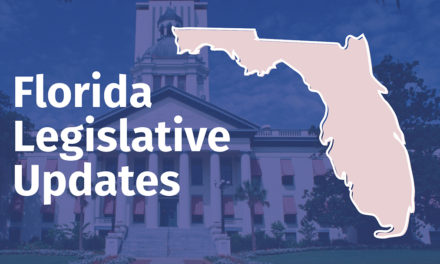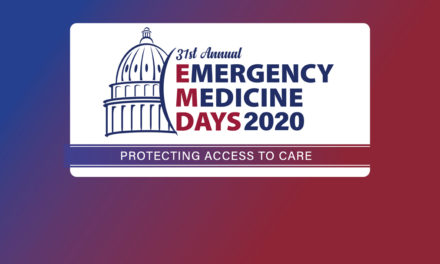Surprise Billing Update: Key Principles for Good Policy
On Friday, the House Ways and Means Committee released a surprise billing proposal: the Consumer Protections Against Surprise Medical Bills Act of 2020. While the bill is currently the best proposal to date, there is still much room for improvement.
Below is a letter that explains what improvements are necessary for physicians to fully support this bill. Please send this to your U.S. Representatives and Senators or pick up the phone and relay its main points:
Dear <Legislator>
As a practicing physician in Florida and as a constituent, I am writing you to respectfully share my concerns around the important issue of surprise billing. While I strongly agree that patients should not be held responsible for surprise bills from out-of-network providers, it is also crucial that any legislative solution to this problem protects the practice of medicine and holds insurers accountable. Unfortunately, several provisions of the proposals currently gaining traction in Congress would hand disproportionate power to the insurance lobby at the expense of physicians and patients. In order to avoid the harm this would cause to Floridians, it is vitally important for the following concerns to be addressed in any final legislative package.
First, Congress must avoid allowing insurance companies to reap profits by stripping physicians of leverage to negotiate fair payments. For instance, proposals that utilize the “median in-network rate” as a benchmark for out-of-network payments would perversely incentivize insurance companies to limit their provider panels in order to deflate the median in-network rate to unsustainable levels. Further, utilizing the median in-network rate as a payment benchmark would eliminate any incentive for insurers to contract with physicians at rates above this threshold, thereby encouraging insurers to offer “take it or leave it” contracts regardless of whether these offers reflect the actual value of care being delivered. Ultimately, this would erode patient choice and fuel consolidation across the health care industry.
Proposals that lack an affordable, equitable and timely independent dispute resolution (IDR) process should similarly be avoided. An effective, mandatory and binding IDR process can allow insurers and physicians to formally settle payment disputes and avoid costly litigation. Ideally, the IDR process should utilize “baseball-style” arbitration, wherein each party submits a rate and the arbitrator must pick one. Such a system creates incentives for both parties to be reasonable in their rate submissions. Absent an effective IDR process, insurers will have little motivation to fairly settle out-of-network payment disputes, and physicians will instead be forced into expensive and time-consuming litigation. In turn, this will fuel further consolidation, as only the largest health care systems can afford to endure endless court battles.
Finally, Congress should not pass any legislation to address surprise billing without giving due consideration to network adequacy. Inadequate insurer networks are a leading, underlying cause of surprise bills and have precipitated many of the patient experiences that have given urgency to this debate. If the current, leading legislative proposals prevail and insurers are given the power to effectively control out-of-network payment rates without being required to maintain adequate provider networks, the result will be a loss for choice for patients, further interference in the patient-physician relationship by an increasingly emboldened and empowered insurance lobby, and an acceleration of consolidation across the health care industry.
For these reasons, I strongly urge you to support the following principles as you evaluate any proposed solution to surprise billing. Legislation that adheres to these principles will address surprise bills while ensuring beneficial and sustainable outcomes for patients, physicians, and our health care system as a whole:
(1) Patients should be protected from surprise bills from out-of-network providers.
(2) Any benchmark for out-of-network payment rates should not be based on in-network or Medicare rates. Instead, they should be based on actual charges in the geographic area where the service is rendered. This will place the underlying benchmark beyond the control of insurance companies that would seek to underpay for medical care.
(3) The data source for those charges should be an independent database, such as the FAIR database, that is not controlled by the health insurance companies. Time and time again insurers have shown they cannot be trusted to maintain their own database for reimbursement–first in the billion dollar Ingenix scandal in New York, and most recently in fraud scandals which have plagued both private insurers and Medicare Advantage payors in California. The FAIR database also includes max-allowable insurer data which could be used in arbitration.
(4) An affordable, equitable and timely independent dispute resolution (IDR) process should be available to settle payment disagreements between insurers and physicians. Ideally, the independent dispute resolution model should utilize “baseball-style” arbitration, wherein each party submits a rate and the arbitrator must pick one. This creates incentives for both parties to be reasonable in their rate submissions.
(5) Insurers should be held accountable when they fail to maintain adequate provider networks. Inadequate provider networks precipitate many of the surprise bills that patients receive.
Again, I strongly, respectfully urge you to support these principles as you evaluate any proposed solution to surprise billing. I firmly believe that this framework would allow Congress to protect patients from surprise bills while also protecting the practice of medicine and the freedom of choice that Floridians value in our health care system. Thank you for your consideration.
Sincerely,
<Your Name>
Samantha manages fcep.org and publishes all content. Some articles may not be written by her. If you have questions about authorship or find an error, please email her directly.




